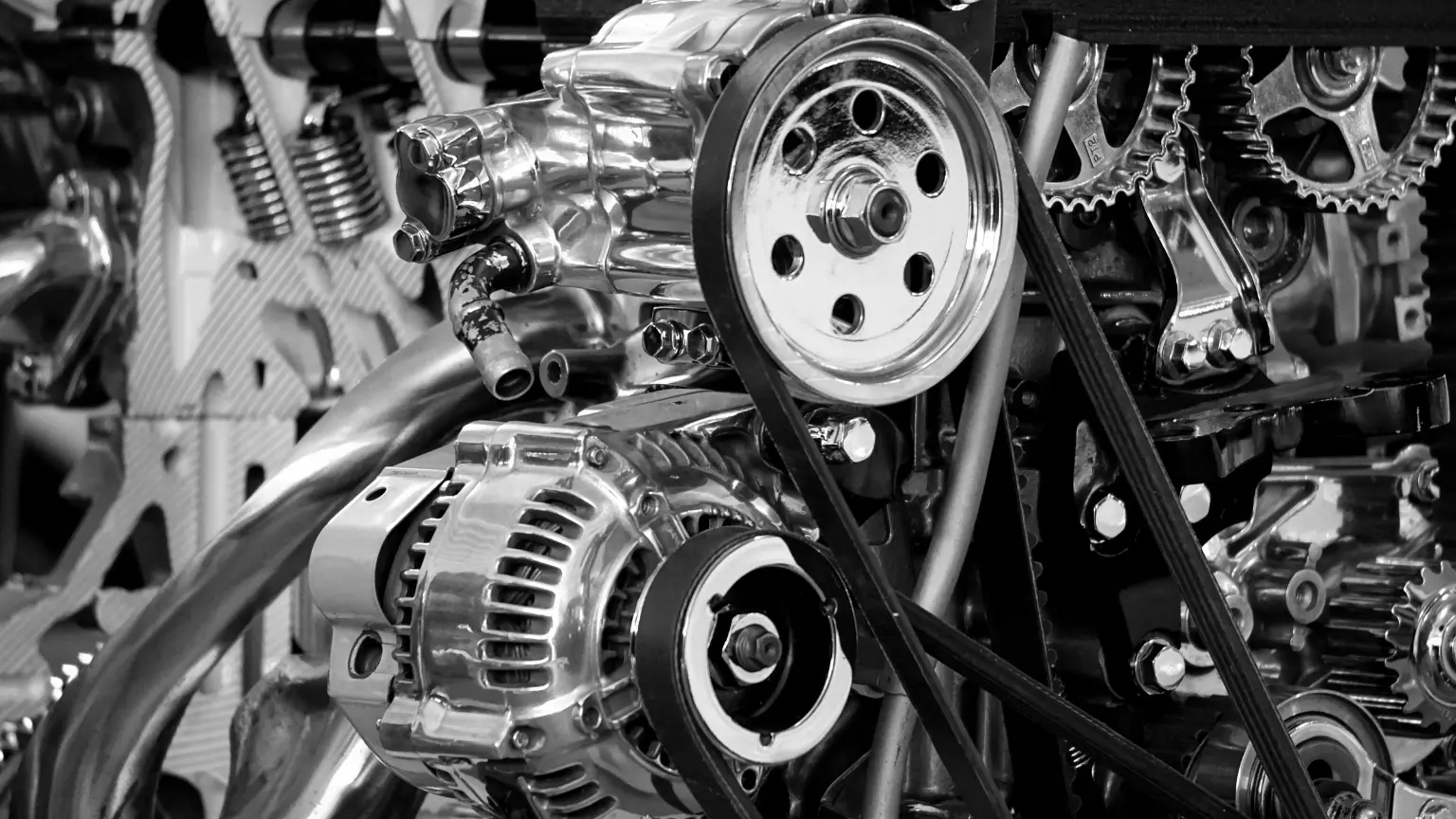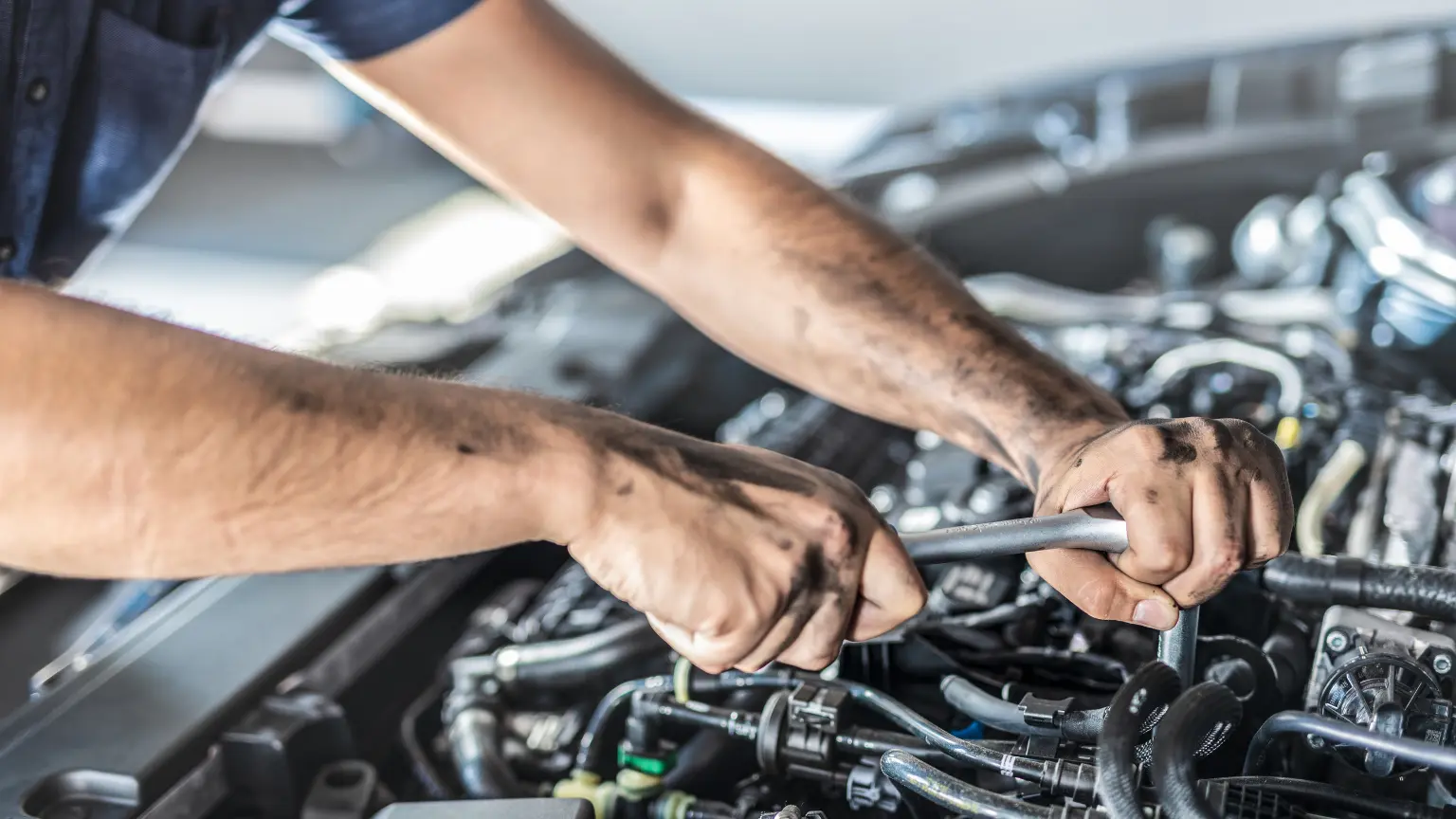The Impact Of Transmission Health On Fuel Efficiency
Learn how a vehicle’s transmission converts engine power for fuel-efficient wheel movement. Compare manual vs. automatic systems, common issues like slipping and leaks, and maintenance best practices.

The heart of a vehicle's ability to move and perform efficiently lies not just in its engine, but significantly in its transmission system. This crucial component does more than just shift gears; it plays a pivotal role in ensuring that the power generated by the engine is transferred effectively to the wheels. The efficiency of this transfer directly impacts fuel consumption. When the transmission operates smoothly, it enables the vehicle to utilize fuel more efficiently, resulting in cost savings and a smaller environmental footprint. This introduction to the transmission's role sets the stage for exploring how maintaining this system is key to optimizing fuel efficiency.

The Critical Role of Transmission in Vehicle Performance
Converting Engine Power into Wheel Movement
The transmission is the unsung hero of your car's performance, quietly doing its job under the hood. It plays a pivotal role in converting the raw power generated by the engine into usable force, propelling your vehicle forward. Think of the transmission as the middleman in the power transfer process: it takes high-speed engine power and converts it, through a series of gears, into lower-speed, higher-torque power at the wheels. This conversion is crucial for acceleration and maintaining speed, demonstrating the importance of a well-functioning car transmission system. Without it, your car wouldn't be able to move from a standstill, nor would it be able to climb hills or efficiently cruise on the highway.
Manual vs. Automatic
When it comes to manual car transmission versus automatic car transmission, each type offers distinct advantages in power transmission efficiency. Manual transmissions tend to be lighter and less complex, providing more direct control over the vehicle by requiring the driver to shift gears manually. This direct control can lead to improved fuel efficiency, as the driver can select the most suitable gear for any given driving condition. On the other hand, automatic transmissions employ a complex system of hydraulics and sensors to automatically select the optimal gear. While traditionally less fuel-efficient due to their complexity and additional weight, advancements in technology have significantly narrowed this gap.
The Significance of Transmission Health
A well-maintained transmission is fundamental to a vehicle's performance, ensuring that the engine's power is transmitted to the wheels with optimal efficiency. This intricate system is responsible for managing the engine's torque and speed, allowing for smooth acceleration and deceleration. However, when transmission problems arise, they can significantly impede this process. Addressing transmission problems promptly is essential to prevent further damage and maintain the vehicle's performance and fuel efficiency. Ignoring early warning signs can lead to more significant issues down the line, including complete transmission failure, which is not only costly to repair but can also render the vehicle inoperable.
Suspension and Tire Pressure
While transmission health is a major factor in fuel efficiency, other vehicle systems play crucial supporting roles that can amplify or diminish the benefits of a well-maintained transmission. Properly functioning suspension ensures that your vehicle maintains optimal contact with the road, distributing weight evenly and allowing the transmission to transfer power efficiently. Worn or damaged suspension components can lead to uneven tire wear, poor alignment, and increased rolling resistance, all of which force the engine and transmission to work harder and consume more fuel. Similarly, maintaining the correct tire pressure is vital for reducing rolling resistance. Underinflated tires increase friction between the tire and the road, causing the drivetrain to expend more energy and resulting in higher fuel consumption. Even if your transmission is operating efficiently, neglecting suspension maintenance or tire pressure checks can undermine overall vehicle efficiency. Regular inspections of these systems, along with prompt repairs, help ensure that the transmission’s efforts to optimize power delivery are not wasted. By viewing fuel efficiency as the result of a well-coordinated vehicle system, drivers can achieve the best possible performance and savings at the pump.
Common Transmission Issues and Their Impact on Fuel Efficiency
Slipping Gears and Fuel Consumption
This issue occurs when the transmission fails to engage a gear fully, leading to a disconnection between the engine's output and the power transmitted to the wheels. Consequently, the engine may rev higher without effectively moving the car at the expected speed. This discrepancy forces the engine to work harder, using more fuel to try to achieve the desired performance. Slipping gears is often a symptom of internal wear or low transmission fluid levels, underscoring the importance of regular car transmission service to maintain optimal fuel efficiency.
Delayed Engagement
Delayed engagement in a transmission is another problem that can negatively impact fuel efficiency. A noticeable delay or hesitation characterizes this issue before the vehicle begins to move after shifting from "Park" to "Drive" or "Reverse." During this delay, the engine continues to consume fuel without effectively transferring power to the wheels, resulting in wasted fuel. Moreover, this symptom can cause additional strain on the engine and transmission over time, potentially leading to more serious car transmission issues and decreased fuel economy. Regular car transmission fluid changes can help identify and rectify such problems early.
The Consequences of Fluid Leaks
Fluid leaks in a vehicle can lead to significant drops in fuel efficiency, an issue that not only impacts the driver's wallet but also the environment. These leaks, often unnoticed until they become severe, can silently degrade the performance of a vehicle. Here’s a closer look at how fluid leaks directly affect fuel efficiency:
- Reduced Lubrication: When a vehicle suffers from fluid leaks, it loses the essential lubricants that keep its moving parts operating smoothly. This deficiency leads to increased friction among these components, which in turn requires the engine to exert more effort—and consequently more fuel—to overcome this resistance. This not only reduces the vehicle’s fuel efficiency but also accelerates the wear and tear on its components, leading to potential failures.
- Overheating: Cooling systems play a pivotal role in maintaining the optimal operating temperature of a vehicle’s transmission. Fluid leaks in this system can result in insufficient cooling, causing the transmission to overheat. An overheated transmission operates far below its efficiency threshold, using more fuel and risking severe damage to the transmission components.
- Impaired Gear Shifts: For vehicles with automatic transmissions, hydraulic fluid is the lifeblood that facilitates smooth gear transitions. A leak in this fluid can lead to inadequate levels, causing rough and inefficient gear shifts. This not only makes for an uncomfortable driving experience but also increases the strain on the engine, leading to higher fuel consumption. With unpredictable gear changes, the car has to use more fuel to keep up speed, which reduces efficiency even more.
- Increased Engine Load: A struggling transmission, whether due to overheating, reduced lubrication, or impaired gear shifts, inevitably places additional demands on the engine. This increased load forces the engine to work harder, which in turn decreases the vehicle's overall fuel efficiency. The extra effort required by the engine to compensate for the transmission's inefficiency results in an unnecessary increase in fuel consumption, making the vehicle less economical to operate and increasing its environmental footprint.
Fluid leaks are more than just a maintenance issue; they are a direct threat to a vehicle's fuel efficiency and overall health. Addressing these leaks promptly can not only save fuel and reduce emissions but also prevent more severe mechanical issues down the line, safeguarding both the vehicle's performance and the owner's investment.
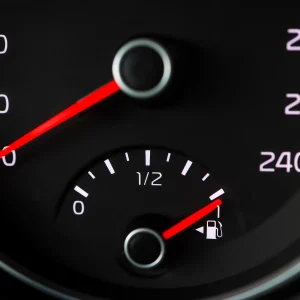
Signs of Car Transmission Problems and Solutions
The Necessity for Prompt Repair Actions
When transmission issues arise, prompt car transmission repair actions are necessary to restore vehicle efficiency and prevent further damage. Ignoring early warning signs can lead to a cascade of transmission damage, impacting other vehicle systems and significantly increasing car transmission costs. Immediate attention to these issues, through professional car transmission diagnostics and repair, ensures that your vehicle remains in optimal operating condition, preserving its fuel efficiency and performance.
Considering Car Transmission Overhaul or Replacement for Restoration
When facing transmission problems, vehicle owners may find themselves at a crossroads, deciding whether a car transmission replacement or overhaul is the most viable option for restoration. This decision is far from straightforward and requires careful consideration of various factors to ensure the longevity and performance of the vehicle are maintained. Here's a more detailed look at what vehicle owners need to contemplate:
- Extent of Damage: The first step in making an informed decision is to thoroughly assess the condition of the transmission. Minor issues, such as fluid leaks or sensor failures, may only necessitate repairs, whereas significant internal damage often justifies a complete overhaul or a replacement. A comprehensive diagnostic by a professional can reveal the extent of wear or damage, guiding the owner toward the most practical and cost-effective solution.
- Vehicle Age and Value: The age and current value of the vehicle play a crucial role in this decision. For older vehicles, the cost of a transmission overhaul or replacement may exceed the vehicle's worth, making it an unwise investment. Conversely, for newer models or classic cars with significant sentimental or monetary value, the investment in restoring the transmission could substantially extend the vehicle’s life and performance, justifying the expense.
- Warranty Coverage: Warranty status can significantly influence the decision-making process. If the transmission is still under the manufacturer’s or an extended warranty that covers major repairs, an overhaul or replacement might incur little to no cost to the owner. This factor alone can make the choice much clearer, especially if the warranty covers the majority of the work needed.
- Future Plans: Long-term intentions for the vehicle should also be considered. For owners planning to keep their vehicles for many years, investing in a transmission overhaul or replacement could be a wise decision to ensure reliability and performance. However, if selling or upgrading the vehicle shortly is a possibility, it might be more prudent to opt for a less expensive repair or even sell the vehicle as is.
Deciding whether to overhaul or replace a transmission is a complex process that requires careful consideration of the damage extent, the vehicle's age and value, warranty coverage, and the owner's plans. Weighing these factors can help vehicle owners make an informed decision that balances cost, performance, and future vehicle use, ultimately ensuring that their investment is both practical and beneficial in the long run.
Transmission Upgrades and Improvements
Upgrading or overhauling your vehicle’s transmission can offer significant benefits for fuel efficiency. Modern transmission upgrades can enhance power transfer and minimize energy loss, enabling the engine to operate more efficiently. Overhauling an older or worn transmission often restores lost efficiency, enabling smoother gear shifts and reducing unnecessary engine strain. These improvements enable the vehicle to maintain optimal RPMs and minimize fuel waste during acceleration or cruising. While upgrades may require an initial investment, the resulting fuel savings and enhanced driving performance can make them a worthwhile long-term solution.
Selecting the Right Service
Ensuring your car's transmission is properly serviced is crucial for its overall health. The transmission is a complex component that requires expert attention for car transmission maintenance. When looking for the right service provider, several key factors should guide your decision to ensure your vehicle receives the best care possible:
- Reputation: The reputation of a transmission repair shop is a vital indicator of the quality and reliability of its services. Look for shops with consistently positive reviews from customers, as this reflects their satisfaction with the service received. A shop known for its integrity and excellent customer service is likely to offer transparent and fair pricing, as well as warranties on its work, providing you with peace of mind and assurance in the quality of the repairs or maintenance performed.
- Certifications: Certifications are a testament to a mechanic's knowledge and skill in handling transmission issues. Ensure the technicians working on your vehicle are certified by reputable organizations. With this certification, they can be assured that they are knowledgeable about the latest industry advancements and have completed extensive testing to demonstrate their proficiency in transmission repair and maintenance.
- Experience: The experience of the technicians is crucial when dealing with something as complex as a car's transmission. Experienced mechanics have likely encountered a wide range of transmission problems and are skilled in diagnosing and resolving issues efficiently. Their hands-on experience can be invaluable in identifying the root cause of a problem and implementing the most effective solution, potentially saving you time and money on unnecessary repairs.
- Advice: A trusted mechanic is not just a service provider but a valuable resource for advice on maintaining your transmission. They should be able to explain the condition of your transmission clearly, offer insights into the best maintenance practices, and guide you on whether a repair, overhaul, or replacement is the most cost-effective and beneficial solution for your situation. This guidance can help you make informed decisions about your vehicle's care and avoid future transmission problems.
Choosing the right transmission service is more than just finding a repair shop; it's about finding a partner to maintain your vehicle's performance and reliability. By considering these key factors, you can ensure that your car is in good hands, receiving the expert attention it needs to keep running smoothly for years to come.
The Importance of Professional Service
Professional transmission mechanics understand the nuances of different car transmission types, including manual, automatic, continuously variable transmissions (CVTs), and dual-clutch transmissions (DCTs). Their specialized training allows them to perform maintenance and repairs with a level of precision that is difficult for non-experts to achieve. This professional touch ensures that the transmission operates as intended, minimizing the risk of efficiency loss and extending the lifespan of the vehicle. Moreover, mechanics can offer valuable advice on driving habits and maintenance schedules that further enhance fuel efficiency. Their expertise ensures that every aspect of the transmission is fine-tuned to maximize fuel economy, making professional service invaluable for conscientious vehicle owners.
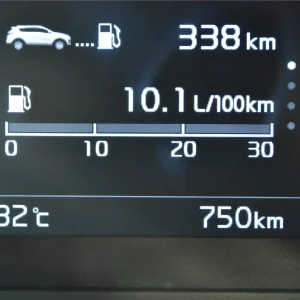
Understanding and caring for your vehicle's transmission is an essential aspect of automobile ownership that directly impacts fuel efficiency, performance, and longevity. The investment in regular maintenance and timely repairs pays dividends in the form of reliable vehicle operation and optimized fuel consumption. By fostering a proactive approach to transmission health, vehicle owners can ensure their cars continue to run smoothly and efficiently for years to come, embodying the true essence of cost-effective and responsible vehicle management.
Follow a maintenance program
Ante gravida id aenean quis egestas risus nam amet nullam leo diam diam aliquam eu eu malesuada arcu rhoncus suspendisse nulla mattis ut amet sagittis in justo egestas.
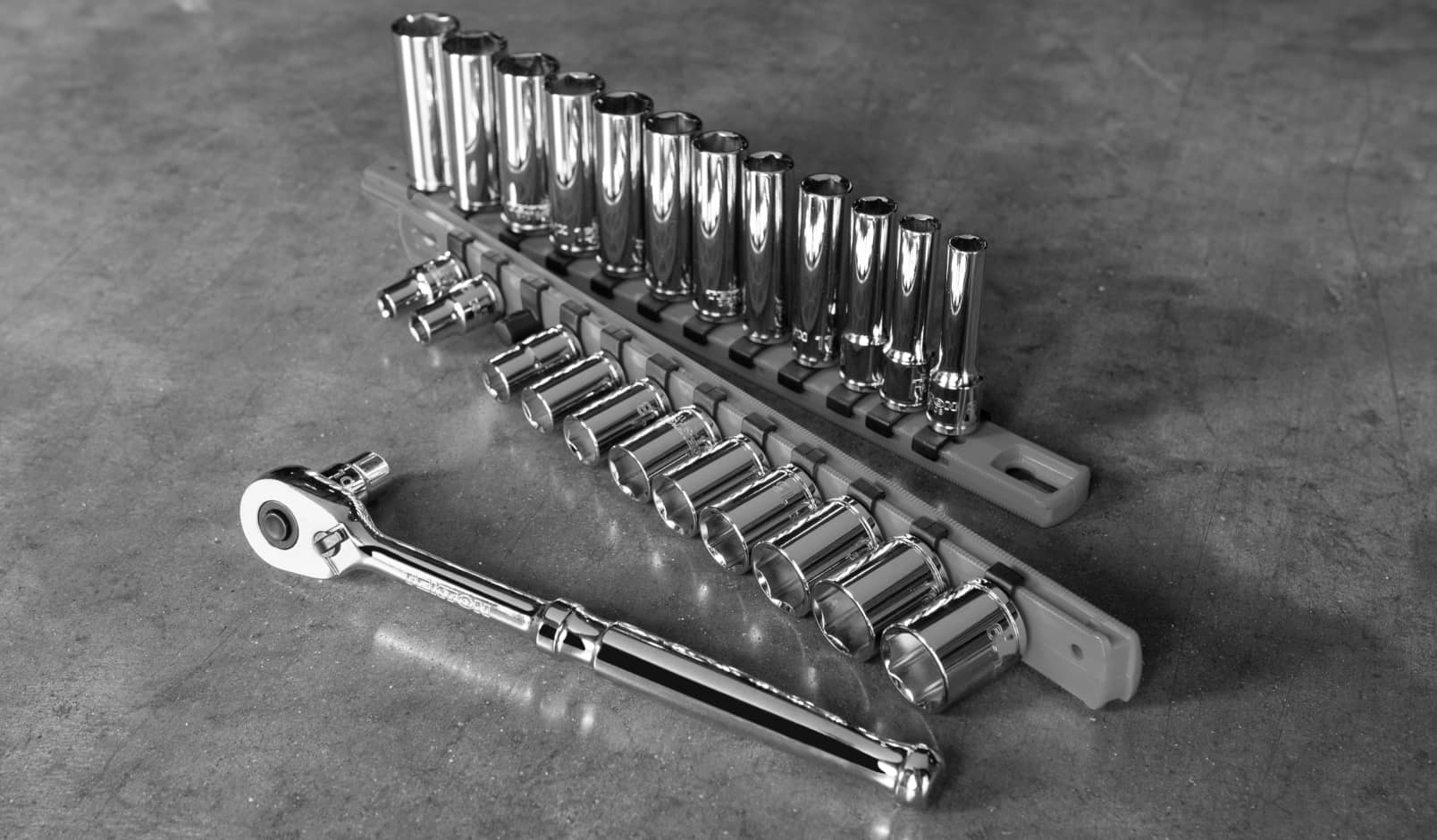
search for a trusted mechanic
Lorem ipsum dolor sit amet, consectetur adipiscing elit lobortis arcu enim urna adipiscing praesent velit viverra sit semper lorem eu cursus vel hendrerit elementum morbi curabitur etiam nibh justo, lorem aliquet donec sed sit mi dignissim at ante massa mattis.
- Neque sodales ut etiam sit amet nisl purus non tellus orci ac auctor
- Adipiscing elit ut aliquam purus sit amet viverra suspendisse potent
- Mauris commodo quis imperdiet massa tincidunt nunc pulvinar
- Excepteur sint occaecat cupidatat non proident sunt in culpa qui officia
Check the air pressure in your tires
Vitae congue eu consequat ac felis placerat vestibulum lectus mauris ultrices cursus sit amet dictum sit amet justo donec enim diam porttitor lacus luctus accumsan tortor posuere praesent tristique magna sit amet purus gravida quis blandit turpis.
Review your suspension frequently
At risus viverra adipiscing at in tellus integer feugiat nisl pretium fusce id velit ut tortor sagittis orci a scelerisque purus semper eget at lectus urna duis convallis. porta nibh venenatis cras sed felis eget neque laoreet suspendisse interdum consectetur libero id faucibus nisl donec pretium vulputate sapien nec sagittis aliquam nunc lobortis mattis aliquam faucibus purus in.
- Neque sodales ut etiam sit amet nisl purus non tellus orci ac auctor
- Adipiscing elit ut aliquam purus sit amet viverra suspendisse potent
- Mauris commodo quis imperdiet massa tincidunt nunc pulvinar
- Excepteur sint occaecat cupidatat non proident sunt in culpa qui officia
Service your vehicle as regularly as posible
At risus viverra adipiscing at in tellus integer feugiat nisl pretium fusce id velit ut tortor sagittis orci a scelerisque purus semper eget at lectus urna duis convallis. porta nibh venenatis cras sed felis eget neque laoreet suspendisse interdum consectetur libero id faucibus nisl donec pretium vulputate sapien nec sagittis aliquam nunc lobortis mattis aliquam faucibus purus in.
“Nisi quis eleifend quam adipiscing vitae aliquet bibendum enim facilisis gravida neque velit euismod in pellentesque”
Conclusion
Eget lorem dolor sed viverra ipsum nunc aliquet bibendum felis donec et odio pellentesque diam volutpat commodo sed egestas aliquam sem fringilla ut morbi tincidunt augue interdum velit euismod eu tincidunt tortor aliquam nulla facilisi aenean sed adipiscing diam donec adipiscing ut lectus arcu bibendum at varius vel pharetra nibh venenatis cras sed felis eget.

